
Seminars in Immunopathology
Scope & Guideline
Unraveling Immune Mechanisms in Pathology
Introduction
Aims and Scopes
- Immunological Mechanisms in Disease:
The journal extensively covers the role of immune mechanisms in various diseases, including autoimmune disorders, cancer, and infectious diseases, providing insights into pathogenesis and potential therapeutic targets. - Therapeutic Approaches in Immunotherapy:
A significant focus is on novel immunotherapeutic strategies, such as CAR-T cell therapy and combination immunotherapies, highlighting advancements in treatment modalities that leverage the immune system. - Microbiome and Immunity:
Research on the interactions between the microbiome and the immune system is a core area, exploring how gut microbiota and metabolites influence immune responses and disease outcomes. - Developmental Immunology:
The journal addresses the development of immune responses from fetal stages to adulthood, including the impact of maternal factors on offspring immunity, which is crucial for understanding immune-related conditions. - Single-Cell Analysis in Immunology:
Utilization of single-cell technologies to study immune cell heterogeneity and dynamics has become a prominent methodological approach, enhancing our understanding of immune responses at an unprecedented resolution.
Trending and Emerging
- Cancer Immunotherapy Innovations:
There is a marked increase in research related to innovative cancer immunotherapy approaches, particularly CAR-T cell therapy and its management, indicating a growing interest in harnessing the immune system to combat cancer. - Role of the Microbiome in Immune Regulation:
Emerging studies focusing on the gut microbiome's influence on immune responses and disease susceptibility are on the rise, reflecting a broader recognition of the microbiome's critical role in health and disease. - Neuroimmunology and Brain-Immune Interactions:
Research exploring the interactions between the immune system and the central nervous system, particularly in neurodegenerative diseases and stroke, is gaining traction, underscoring the importance of understanding these complex relationships. - Metabolic Regulation of Immunity:
An increasing body of work is investigating the intersection of metabolism and immune function, particularly how metabolic states influence immune responses and the implications for diseases such as obesity and diabetes. - Single-Cell and Multi-Omics Approaches:
There is a significant trend towards employing single-cell and multi-omics techniques to unravel the complexity of immune responses, allowing for more precise and detailed insights into immunological processes.
Declining or Waning
- Classic Autoimmunity Studies:
Research centered on classic autoimmune diseases, such as rheumatoid arthritis and lupus, has seen a relative decline, possibly due to saturation in the field and a shift towards understanding immune mechanisms in a broader context. - Traditional Vaccine Studies:
Traditional studies focusing solely on vaccine efficacy and safety without considering the broader immunological implications have diminished as research increasingly emphasizes the role of immune memory and the long-term effects of vaccination. - Infectious Disease Research Focused on Pathogens:
While infectious diseases remain relevant, there seems to be a waning interest in studies that only focus on pathogen characteristics without integrating host immune responses, reflecting a more holistic approach in current research.
Similar Journals

Immunotherapy
Exploring Innovative Therapeutic Strategies for TomorrowImmunotherapy, published by Future Medicine Ltd, is a leading journal focused on the evolving field of immunotherapy within the realms of immunology, oncology, and allergy. With an ISSN of 1750-743X and an E-ISSN of 1750-7448, this academic journal has been at the forefront of groundbreaking research since 2009, and continues to illuminating insights in a landscape critical for the development of innovative therapeutic strategies through 2024. Positioned within Q2 and Q3 quartiles in various relevant categories, the journal ranks commendably in Scopus metrics, exhibiting robust engagement and relevance in Oncology and Immunology. It serves as an essential resource for researchers, clinicians, and students eager to stay abreast of advancements in immunotherapy, while also providing an open platform for sharing impactful studies. By disseminating high-quality research, Immunotherapy fosters a global dialogue among professionals and contributes significantly to the scientific community's collective knowledge on the increasing role of immune-based therapies in disease management.
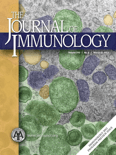
JOURNAL OF IMMUNOLOGY
Championing Cutting-edge Immunological StudiesWelcome to the JOURNAL OF IMMUNOLOGY, a prestigious publication associated with the American Association of Immunologists and dedicated to advancing the field of immunology. With a rich history dating back to 1945, this journal is renowned for its high-impact research, evident in its notable 2023 Q1 rankings in both Immunology and Allergy, as well as its strong positions in Scopus rankings—Rank #68 in Immunology and Allergy and Rank #79 in Immunology and Microbiology. Although it operates on a subscription basis, its commitment to publishing cutting-edge studies ensures that it remains a vital resource for scientists, healthcare professionals, and students alike. As the journal continues to pave the way for innovative research and breakthroughs in immunological science, it facilitates a platform for dialogue and discovery among researchers and practitioners across the globe.
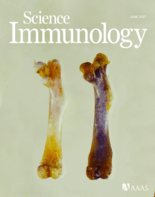
Science Immunology
Unlocking the Secrets of the Immune SystemScience Immunology, published by the American Association for the Advancement of Science, is a leading journal in the field of immunology, recognized for its significant impact and rigor in advancing our understanding of immune responses and complex diseases. With an impressive impact factor that places it in the Q1 category of both immunology and allergy, as well as miscellaneous medicine, this journal is ranked #7 and #8 in their respective Scopus categories, reflecting its high-quality research output. Since its inception in 2016, Science Immunology has been at the forefront of interdisciplinary immunological research, fostering crucial insights that link immunology with pressing health challenges. The journal is committed to providing open access to its content, ensuring that groundbreaking findings are accessible to a global audience of researchers, professionals, and students. Its anthology not only addresses fundamental immunological mechanisms but also enhances the dialogue on translational applications and therapeutic interventions, solidifying its position as an essential resource within the scientific community.

CANCER IMMUNOLOGY IMMUNOTHERAPY
Exploring Innovative Therapies for Cancer PatientsCancer Immunology Immunotherapy, published by Springer, stands as a premier journal in the fields of cancer research and immunology, holding a prestigious Q1 ranking across multiple categories, including Oncology and Medicine as of 2023. With an ISSN of 0340-7004 and an E-ISSN of 1432-0851, this journal has been a pivotal platform for groundbreaking research since its inception in 1976, continuing to provide insight into the complex interactions between the immune system and cancer. The journal's scope encompasses a wide array of topics, including novel therapeutic strategies, immunological mechanisms, and translational science aimed at advancing treatment outcomes for cancer patients. Renowned for its rigorous peer-review process and high impact factor, it attracts contributions from leading experts and researchers around the globe, positioning itself among the top-tier publications with Scopus rankings that reflect its vital role in advancing the field. Access options are generally subscription-based, ensuring a comprehensive resource for professionals and academics seeking to deepen their understanding and make meaningful contributions to cancer immunotherapy.

Welcome to Immuno, a pioneering open-access journal published by MDPI that serves as a key platform for the dissemination of innovative research in the fields of immunology, biochemistry, and genetics. Established in 2021, this journal has rapidly established itself within the academic community, currently ranking in the 53rd percentile in Medicine (miscellaneous) and 50th percentile in Biochemistry, Genetics, and Molecular Biology according to Scopus metrics. With a commitment to advancing our understanding of immune mechanisms and their applications in health and disease, Immuno is dedicated to publishing high-quality peer-reviewed articles that contribute valuable insights to both researchers and practitioners. Positioned in the heart of Switzerland, its global accessibility and diverse editorial board are a testament to its aim to promote knowledge exchange among scientists, practitioners, and students alike. Explore the latest discoveries and advancements in immunological research through Immuno, where your contributions help shape the future of this critical area of study.
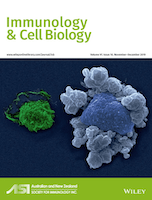
IMMUNOLOGY AND CELL BIOLOGY
Fostering Knowledge in Immunology and Cellular MechanismsIMUNOLOGY AND CELL BIOLOGY, published by Wiley, serves as a prominent platform for disseminating cutting-edge research in the fields of immunology and cell biology. With an ISSN of 0818-9641 and an E-ISSN of 1440-1711, this journal has established itself since its inception in 1987, demonstrating a commitment to advancing knowledge in its disciplines through high-quality articles. Renowned for its rigorous peer-review process, it holds a Q2 quartile ranking in both immunology and cell biology categories as of 2023, showing its competitive stature in these fields. IMUNOLOGY AND CELL BIOLOGY is indexed among the elite journals worldwide, with impressive Scopus rankings, including a rank of #75/233 in Immunology and Allergy. The journal’s comprehensive scope ensures that it caters to an audience of researchers, professionals, and students who are dedicated to exploring the intricate mechanisms of immune responses and cellular interactions. Although it does not operate under an open access model, its subscription-based content remains invaluable for those seeking to broaden their understanding of immunology and cell biology. By providing a forum for significant scientific dialogue, IMUNOLOGY AND CELL BIOLOGY continues to shape the future of research in these vital areas.
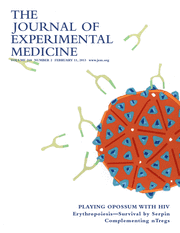
JOURNAL OF EXPERIMENTAL MEDICINE
Advancing the Frontiers of Medical ResearchJOURNAL OF EXPERIMENTAL MEDICINE, published by Rockefeller University Press, is a renowned peer-reviewed journal dedicated to advancing the field of experimental medicine since its inception in 1896. With an impressive impact factor and categorized in the Q1 quartile for Immunology, Immunology and Allergy, and Miscellaneous Medicine, this journal stands at the forefront of medical research and innovation. It provides a prestigious platform for scholars and practitioners to disseminate groundbreaking findings that drive the understanding of disease mechanisms and therapeutic strategies. While the journal is not open access, it maintains high visibility and engagement within the scientific community, fostering collaboration among researchers, professionals, and students alike. The journal's consistent ranking in the top percentiles of Scopus illustrates its significant impact and commitment to excellence in medical research.

INFLAMMATION RESEARCH
Advancing knowledge in the realm of inflammation.INFLAMMATION RESEARCH, published by SPRINGER BASEL AG, serves as a pivotal journal in the fields of Immunology and Pharmacology, with notable rankings of Q2 in Immunology and Q1 in Pharmacology as of 2023. With an ISSN of 1023-3830 and an E-ISSN of 1420-908X, this esteemed journal, located in Basel, Switzerland, has been at the forefront of advancing our understanding of inflammatory processes since its inception in 1995. Covering research trends and breakthroughs until 2024, it significantly contributes to both the theoretical frameworks and practical applications within its discipline, boasting a strong Scopus ranking of #40/313 in Pharmacology and #56/236 in Immunology, placing it in the top percentiles for its field. Although it does not offer Open Access options, the journal remains an invaluable resource for researchers, professionals, and students committed to unraveling the complexities of inflammation and its implications in health and disease.

Immunotherapy Advances
Illuminating the path to next-generation immunotherapeutic techniques.Immunotherapy Advances, published by Oxford University Press, stands at the forefront of the rapidly evolving field of immunology and microbe interactions, focusing specifically on novel immunotherapeutic strategies and their clinical applications. Established in 2021, this peer-reviewed journal aims to disseminate high-quality research that contributes to the understanding and advancement of immunotherapeutic techniques, potentially transforming patient care in immunology. With a current Scopus rank of #140 out of 236 in the realm of Immunology, placing it in the 40th percentile, Immunotherapy Advances is positioned to be an integral resource for researchers, healthcare professionals, and students eager to stay updated with groundbreaking findings and methodologies. The journal is dedicated to fostering innovative discussions and collaborations, ensuring open access to vital research that influences treatment paradigms globally.
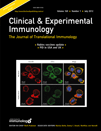
CLINICAL AND EXPERIMENTAL IMMUNOLOGY
Shaping the Future of Immunological ScienceClinical and Experimental Immunology, published by Oxford University Press, is a premier journal that has been a cornerstone in the field of immunology since its inception in 1966. With an ISSN of 0009-9104 and an E-ISSN of 1365-2249, this journal holds a significant position in academic research, currently ranking in the Q2 category for both Immunology and Allergy (2023). Its impactful contributions are reflected in its Scopus rankings, where it stands at Rank #63 out of 233 in Immunology and Allergy, placing it in the 73rd percentile, and Rank #73 out of 236 in Immunology and Microbiology. Researchers, healthcare professionals, and students will find this journal an invaluable resource for cutting-edge studies, reviews, and clinical advancements in the ever-evolving domain of immunology. While the publication does not offer open-access options, it remains a pivotal platform for disseminating knowledge that impacts both clinical practice and experimental research.